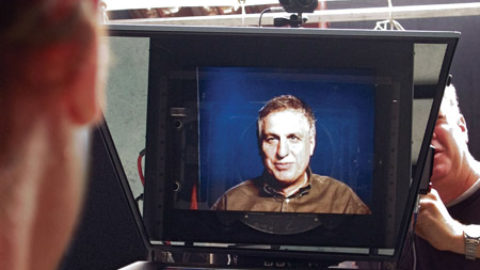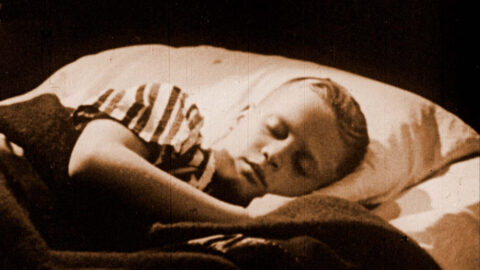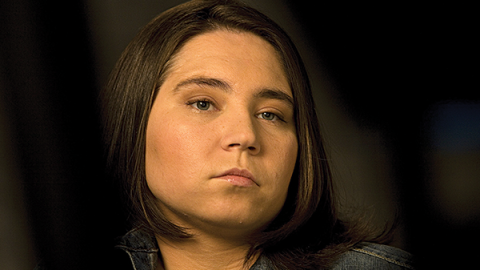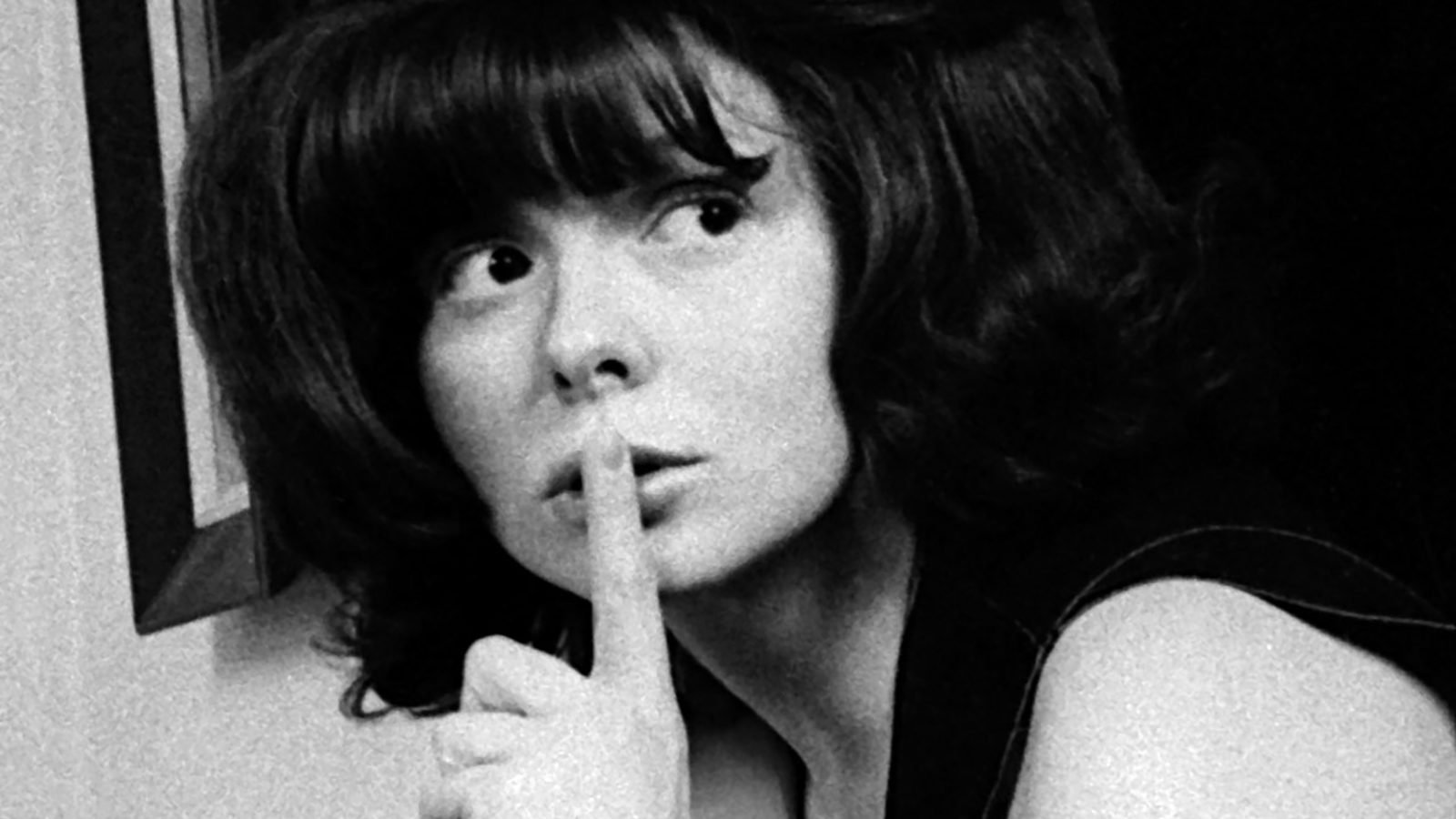
Magnificent Obsessions!
One of the many ways that Joyce McKinney, the subject of Errol Morris’s Tabloid, sums up her life is through a quote she ascribes to Brigitte Bardot: “I gave my youth to men, and my old age I give to dogs that I trust.” McKinney was a tabloid story twice over: first in 1977, as “Joyce McKinney and the Manacled Mormon” and nearly three decades later as the “Manacled Mormon” sex maniac who cloned her dog.
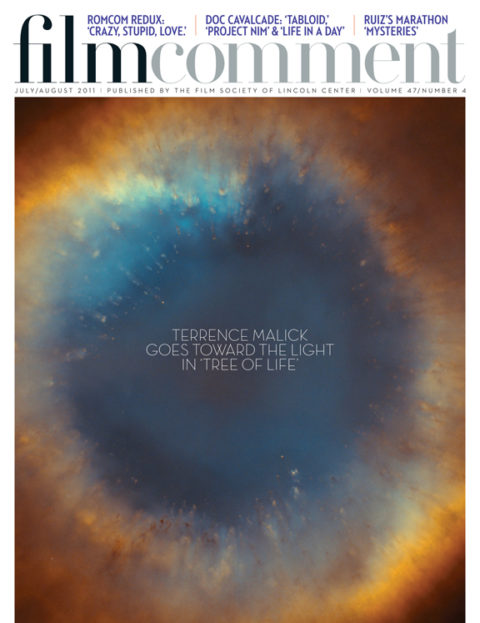
McKinney may or may not be “barking mad,” as she is characterized by Peter Tory, a reporter who “covered” both McKinney stories for Britain’s Daily Express, and who is the less objectionable of the mere two representatives of the tabloid press in a film that takes its name from that industry. Like most of Morris’s documentaries, regardless of their titles, Tabloid focuses on the individual rather than the institution. Morris shows virtually no interest in the workings of the tabloid press per se, suggesting instead that the tabs are only the extreme example of a mentality, a value system, a network of desire that pervades the dominant media—television, movies, books, the mainstream press—and which has shaped and is shaped by all of us, Morris included. Before Tory gets to the phrase “barking mad,” he has described McKinney as “not an evil person . . . just a bit crazy, eccentric, self-obsessed, and self-involved and manipulative.” But it’s the “barking mad” with its implication of Alice in Wonderland absurdity that captures Morris’s attention. “Barking mad,” the filmmaker repeats off camera. “I wish we had that expression over here.”
A beauty-pageant winner from childhood, McKinney moved to Utah when she was in her late teens. One day, she was driving her red Corvette, and according to her recollection of the event that changed her life forever, locked eyes with a boy driving in the next lane. It was love at first sight, which seems, well, barking mad, since McKinney was a sweet-faced, bubbly, big-breasted blonde and, from the few available photos, the object of her desire, Kirk Anderson, appeared to be a dour, bespectacled, stoop-shouldered hulk. (Anderson refused to be interviewed for Morris’s movie.) As McKinney tells it, soon the pair were thinking up names for the children they would have. But Anderson’s Mormon family disapproves of McKinney, and suddenly Kirk vanishes without so much as a letter to his supposed bride-to-be. McKinney believes he has been kidnapped by what she deems a cult and is determined to rescue him. In fact, he had simply been sent overseas to do the missionary work required of all young Mormon men.
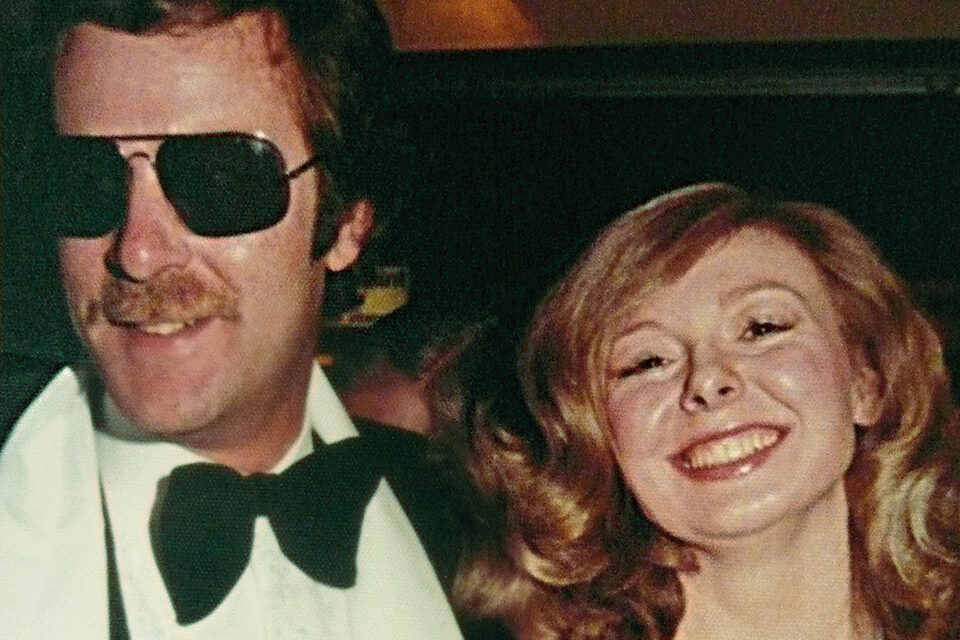
McKinney finds Kirk in England and takes him by force to a bucolic retreat where, in order to deprogram him, she applies a bondage routine that she claims to have learned from a Christian sex manual. After a week of her ministrations, they agree (again, this is how McKinney reads the situation) that they are truly wed and go to London to officially tie the knot, whereupon McKinney is arrested on kidnapping charges. While in prison for three months awaiting trial she becomes the biggest tabloid story of the year. Out on bail, she seems to be enjoying her celebrity until the prospect of a long prison sentence causes her to leave England using a forged passport and posing as a deaf mute. The tabloids pursue her to the U.S., where McKinney loses control of the narrative when the Daily Mirror, far more enterprising than the Express, discovers that she financed her jaunt to England by working in the sex industry as a nude model and a dominatrix. She has a nervous breakdown and all but disappears for about 30 years only to become tabloid fodder again when the second great love of her life, her dog Booger, dies of old age and she has him cloned.
It’s at this point that Morris seems to have come across McKinney’s wildly compelling story, which, try as I might, I could not keep from recounting here. (Don’t worry, the pleasure is in the details and I haven’t given many of them away.) As was the case with his first and in many ways still his strongest feature, Gates of Heaven (78), a personal and, by the norms of social behavior, inappropriately intense story of love and loss, it begged for a more nuanced and respectful treatment than the tabloids had given it.
Morris has always been drawn to sensational material. The problem has been that increasingly in his theatrical features since The Thin Blue Line (88), he has piled on film tropes calculated to manipulate the sensations of the viewer (ominous music, dramatic lighting, grandiose close-ups) at the expense of analysis. It also cannot be said too often that the almost complete absence of a political framework and a moral position in both The Fog of War (03) and Standard Operating Procedure (08) is deplorable, as is the obsequiousness with which Morris treats Robert McNamara in the former and his contempt in the latter for the dehumanized grunts of Abu Ghraib—a contempt that would have been better directed at McNamara’s counterparts in the Iraq war, who are not even mentioned.
Compared to these two films, Tabloid is intimate in scale and its politics or rather ideology is that of romantic love and its representations. There’s more pleasure on the screen here than in all of Morris’s weightier movies put together. The tabloid collages that illustrate the interviews and push the narrative forward are hilarious. Morris is a bit too casual an interviewer—he seems to rely on his “Interrotron” (a multiple camera-monitor setup that makes the talking-head space more fluid and the gaze of the subject on screen more direct) to animate the conversation between himself (heard but never seen) and the person being shot. But McKinney’s enjoyment in telling her story and Morris’s enjoyment of her are irresistible. Feminism, however, has never entered her consciousness. Thus identifying with her is a guilty pleasure. But who has not, at some point in life, fixated on an impossible object of desire and behaved badly in pursuing it? And who has not tried to will a companion animal to live forever? I only wish Morris had asked her if she’s still a virgin.



